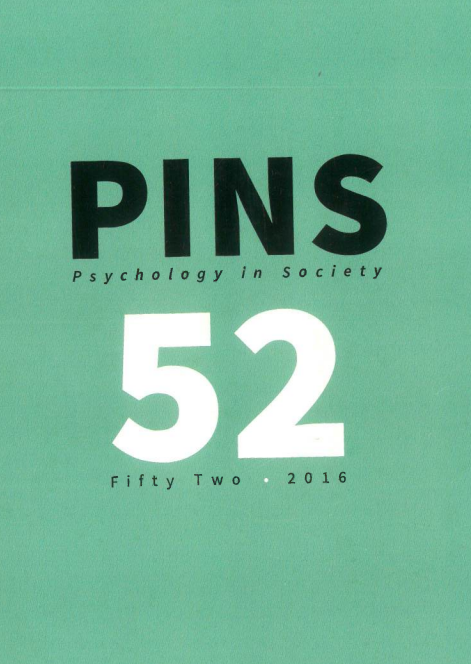The male role in cervical cancer prevention and transmission: Representation of subject positions in South African press reports (1998-2014)
DOI:
https://doi.org/10.17159/2309-8708/2016/n52a3Keywords:
cervical cancer, HPV, male sexual health, poststructural feminism, subject positionsAbstract
Cervical cancer (CC) media coverage neglects mention and interrogation of the role of men in sexually transmitting the virus linked to CC. Newspapers, in their public role of engaging with social debates, unlike other media forms, might be expected to interrogate misconceptions of CC. This study sought to analyse how male persons are represented in newspaper reports of CC. Using the discursive analytic tool of subject positioning, South African newspaper reports of CC were analysed. The findings revealed five categories of subject positions with male persons serving as protagonists who interact with subjects in the remaining four categories. In the male subjects’ category, the unaccountable man and circumcised saviour were the most commonly occurring positions. Reportage, however, also covered male positions traditionally marginalized or excluded from public and mainstream health campaigns, and the most pertinent of these were labelled as the sex-talk son and the boy saviour. CC should be conceptualized not merely as a health issue faced by individual women, but as a social issue with a need for increased public visibility of the male role in transmission and prevention.
Downloads
Downloads
Published
How to Cite
Issue
Section
License
This journal is an open access journal, and the authors' and journal should be properly acknowledged, when works are cited.
Authors may use the publishers version for teaching purposes, in books, theses, dissertations, conferences and conference papers.
A copy of the authors’ publishers version may also be hosted on the following websites:
- Non-commercial personal homepage or blog.
- Institutional webpage.
- Authors Institutional Repository.
The following notice should accompany such a posting on the website: “This is an electronic version of an article published in PINS, Volume XXX, number XXX, pages XXX–XXX”, DOI. Authors should also supply a hyperlink to the original paper or indicate where the original paper (http://www.journals.ac.za/index.php/pins) may be found.
Authors publishers version, affiliated with the Stellenbosch University will be automatically deposited in the University’s’ Institutional Repository SUNScholar.
Articles as a whole, may not be re-published with another journal.
The copyright of the article(s) lies with the author(s).
The copyright of the journal lies with PINS-psychology in Society.
The following license applies:
Attribution CC BY-NC-ND 4.0 - https://creativecommons.org/licenses/by-nc-nd/4.0/

